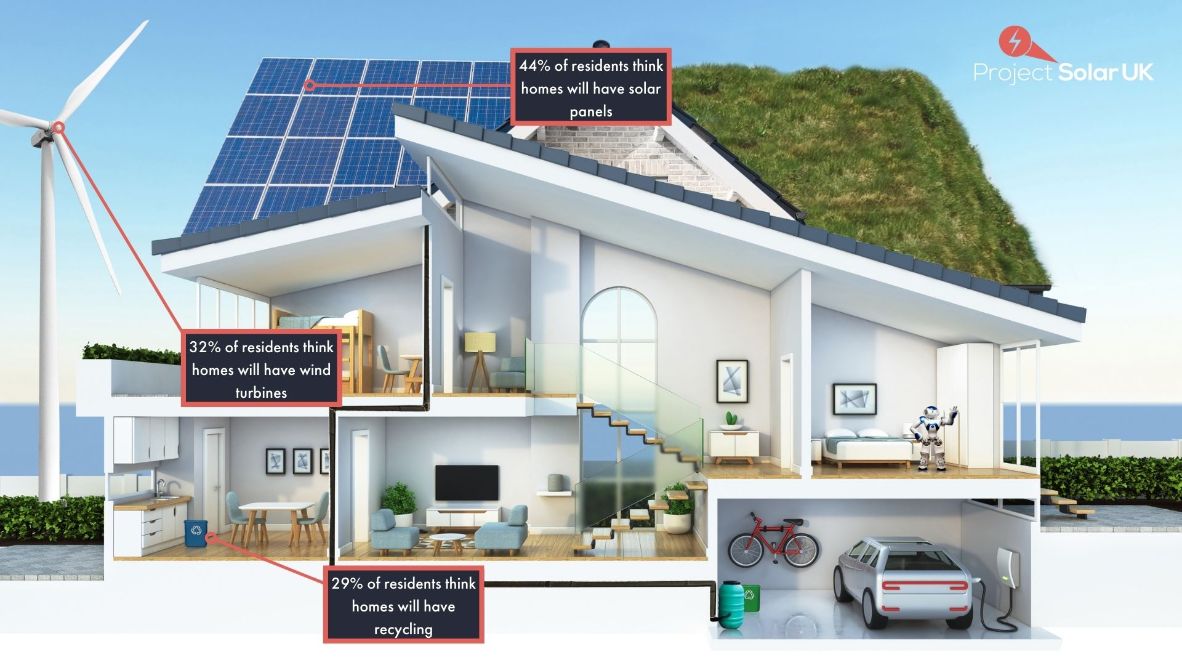Landfill waste gadgets, heat pumps and wind turbines also make it into the top half dozen suggestions for what houses of the future will feature to help reach the 2050 government carbon target.
A survey among Birmingham residents questioning what the houses of the future will have to help reach net zero showed that 44% thought solar panels to generate electricity should feature, 39% would have rainwater collection devices and 31% would have electric vehicle charging points.
Gadgets to help with landfill waste came in at 4th with 29% and heat pumps came in at 5th with over 27% of those surveyed thinking they would be useful for a house of the future to help with the environment.
Devices using data to optimise food shops (i.e., to help identify food waste) were cited by 13% and devices that use data to show the clothes you never wear and products you should stop buying were recognised by 11% of respondents as clever suggestions for a future home. Robots to undertake household chores, such as switching on the oven, were mentioned by 8%.when asked what the house of the future would have to help reach the government goal of net zero in28 years’ time.
The natural resource of the sun received a further mention with 17% of respondents suggesting the house of the future should be sun facing to maximise warmth. Having south facing roofs is often mentioned as an important factor when installing solar panels. However, this is not the case as solar panels can attract energy from the sun, even on the cloudiest of days, from any angle.
Installing solar panels as the most popular answer in the survey underlines the trend towards using natural resources to generate energy. Gas and electricity bills continue to spiral and alternatives such a solar and wind power are now actively being considered by Birmingham residents.
Just under a half (49%) of respondents to a separate survey in or around Birmingham said they think the advantages of solar panels are because they create cheaper electricity, 24% said solar panels add value to a property and 23% said solar panels help them to become carbon neutral. Over a quarter (27%) of respondents acknowledged one of the benefits of solar is so that they generate electricity even through winter, when there is minimum sunshine.
Simon Peat, CEO of Project Solar UK, the largest retailer and installer of solar panels in the UK, who commissioned the surveys, says: “Birmingham residents are really seeing the value of the sun and solar panels as they think about what a house of the future might feature. We would be happy to share the information we have gathered over the past decade in the industry with anyone thinking about future proofing their house.”











